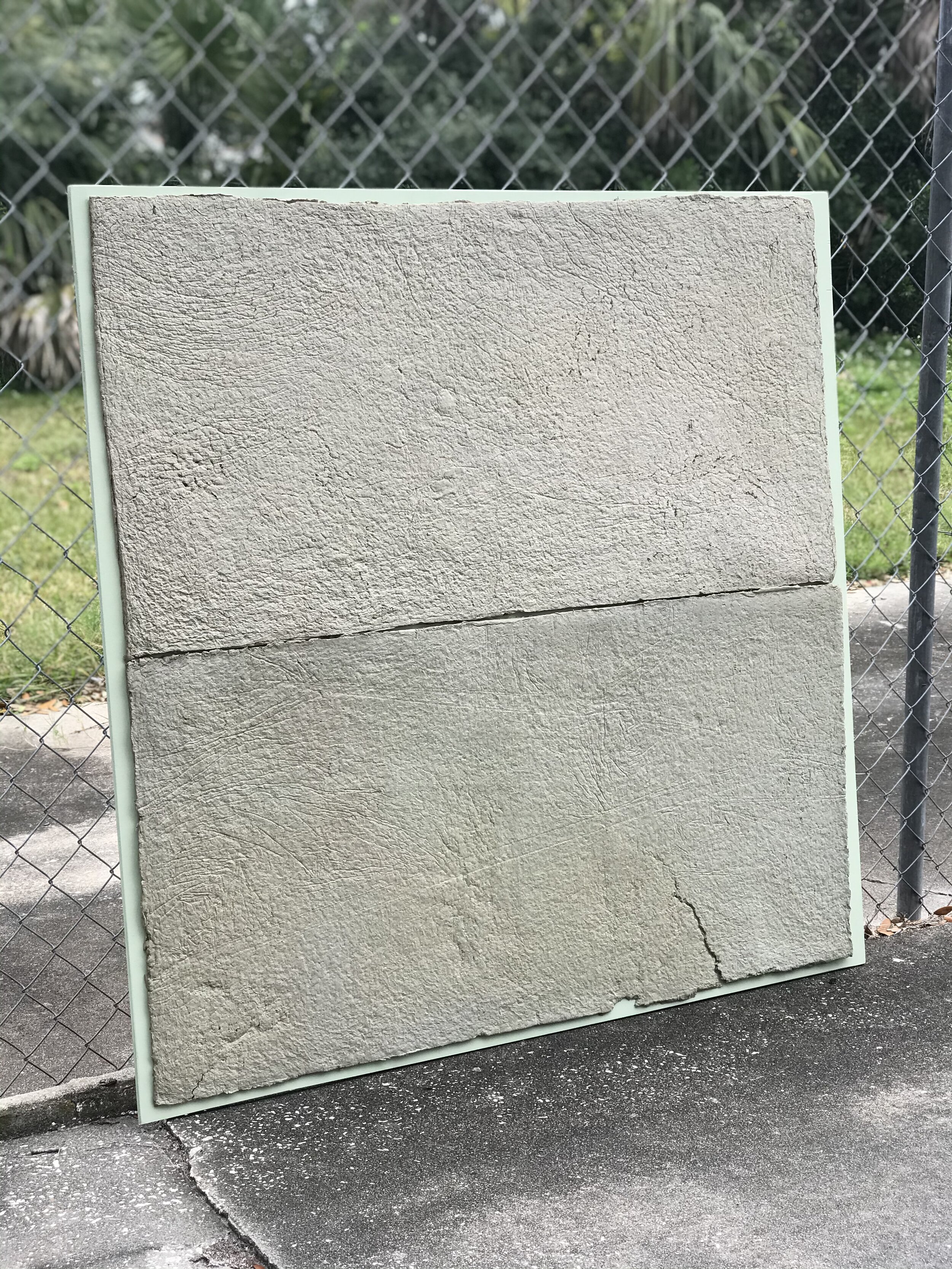Modes of Knowing
An essay written by Luper on his work
So I’m In the kitchen, I am thinking about Philadelphia and the Institute of Contemporary Art, where I saw an installation by Louise Fishman, in particular a piece of paper framed and hanging on the wall. I don’t want to make meatloaf or sandwiches. I want to make something like that piece of paper, with heavy texture and the color of the earth, something that looks like a piece of the earth. I don’t want to smile at people I don’t know, I don’t want to wash dishes, I don’t want this job, and I don’t want to work. So I don’t. I grab some avocado crates, and a blender and I go to work or what you could call antiwork.
The process and product of this work calls into question our notions of work. The work I have generated here had its genesis at my actual place of work when I stopped making food and started blending up the crates the avocados are packed in, pouring the pulp into the meatloaf tins, then baking them until they dried and hardened.
The first step in this process is crucial, the refusal of work. In her book “The Problem With Work” Kathi Weeks describes the refusal of work as “a refusal of the ideology of work as highest calling and moral duty, a refusal of work as the necessary center of social life and means of access to the rights and claims of citizenship, and a refusal of the necessity of capitalist control of production. It is a refusal, finally, of the asceticism of those who privilege work over all other pursuits.” She later says it is “a process, a theoretical and practical movement that aims to effect a separation through which we can pursue alternative practices and relationships.”
Through this subversive act of refusal a separation does occur and in that separation, that space, the individual is able to reestablish and realign their wants and needs outside of the system that seeks to control them. What they choose to do in that space in now their own. Refusal of work doesn’t mean doing nothing, rather it is a generative act that allows us to do something other than work, like make paper, spend time with family, explore life.
I would go even further to say that refusal is an admission of incompleteness. It is in refusal that we obtain our autonomy. David Graeber describes refusal as that which culture is derived from. He gives an example of two tribes, each with their own style of kayak, one obviously superior to the other and yet the tribe with the inferior kayak continued to use it even though they knew how to build the better one. Why? because their kayak was theirs, it was apart of their cultural identity. With these art works I have taken back my identity from my employer and from the capitalist system that controls the ways in which we work.
The product itself is a metaphor for the process in as much as it still resembles its former self but has undergone a transformation. In the same way that antiwork might resemble work, you can look at these art works and recognize the materials used but they aren’t what they used to be. They have been deconstructed and reconstructed into something new.
Fred Moten discusses the relationship between regurgitation and rumination in one of his talks. Rumination disorder is when an infant or child brings back up their food after eating then chews and usually swallows it again. I know its kinda gross, but, I find it an apt simile with my work because I think of it as both somewhat abject and as a rumination on work as a part of our culture.














